The Stuff Gadget Awards 2025: our headphones of the year
These cans can. Read on to discover the best sports, true wireless and over-ear headphones of 2025
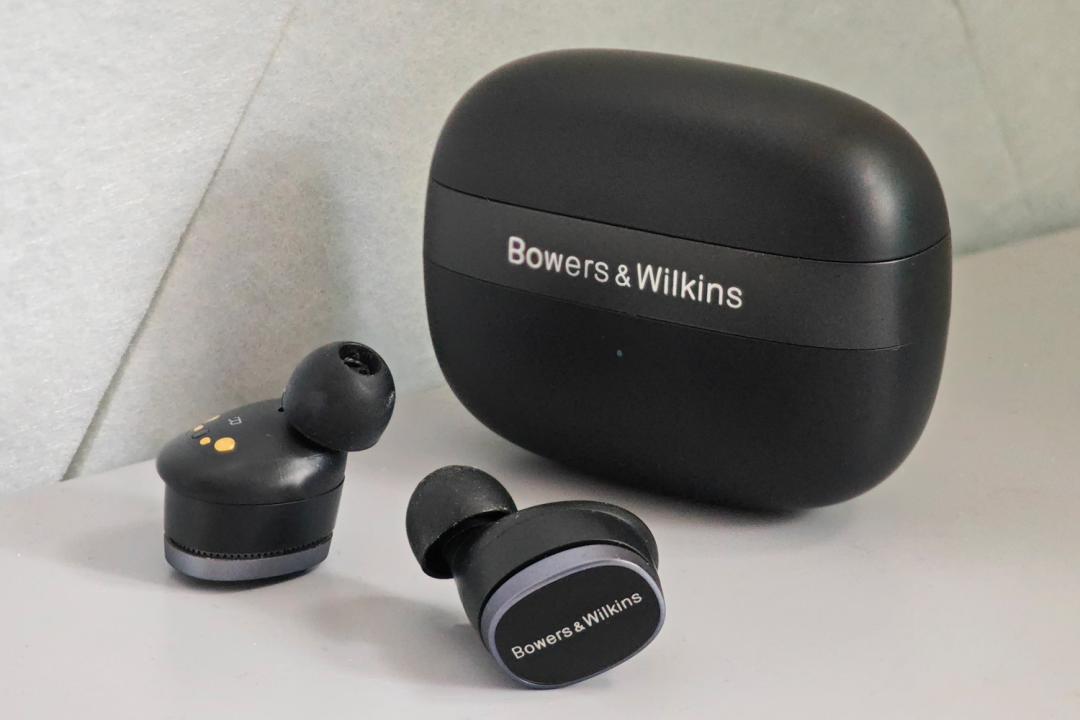

There’s still room for innovation in the headphone market. This year, true wireless earbuds finally cracked the battery life conundrum, with several models stretching beyond 30 hours of playtime – no comically oversized cases required. Fitness-focused headphone designs evolved too: swimmer-friendly bone conductors got an audio quality glow-up, while highly accurate optical heart rate sensors migrated from our wrists to our ears.
Over-ear cans witnessed a premium materials renaissance in 2025. Titanium drivers became the calling card of luxury models, whilst carbon fibre and magnetic fluid technology delivered considerable improvements in clarity.
The shift from wired to wireless reached a tipping point too, with Bluetooth now accounting for the vast majority of sales as manufacturers perfected battery life and connectivity. Spatial audio with head tracking evolved from gimmick to genuinely useful feature, particularly for Dolby Atmos content, creating immersive soundscapes that move with your noggin.
Budget headphone releases impressed perhaps most of all. Sub-£200 buds delivered noise cancellation and spatial sound features once reserved for high-end options. OnePlus, Nothing and Cambridge Audio proved you don’t need flagship pricing for genuinely engaging sonics.
It’s time to reveal which headphones earned 2025’s podium spots.
True wireless headphones of the year: Bowers & Wilkins Pi8
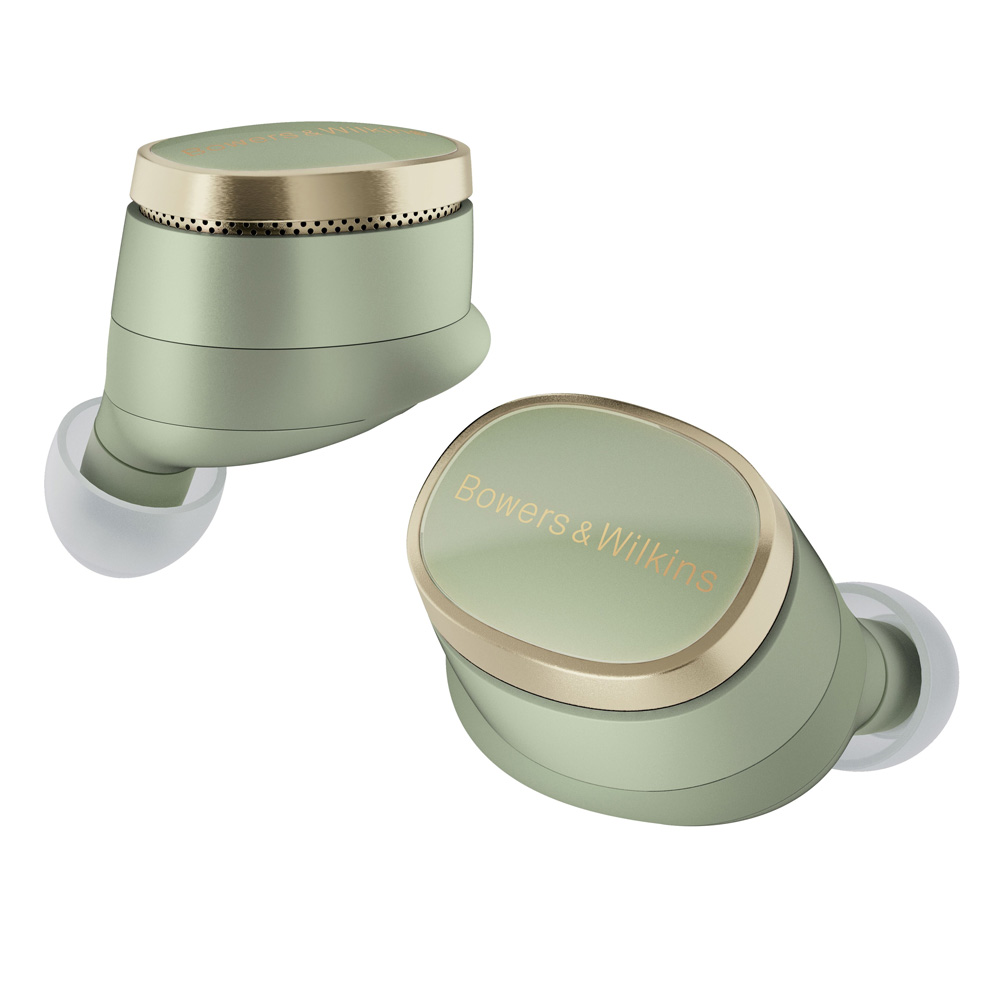
Sound quality is the defining reason the Pi8 claims this award. Bowers & Wilkins has delivered exceptional sonic precision that leaves rivals trailing behind, with high-frequency clarity so refined that competitors seem almost muffled by comparison.
The secret lies in the 12mm carbon cone driver borrowed from the flagship PX8 over-ears, eliminating crossover distortion entirely by ditching the dual-driver setup. Every detail shines, from falsetto vocals to aggressive industrial synths, with tight, textured bass that never intrudes on the rest of the frequency range.
The compact charging case adds genuine cleverness too, retransmitting high-quality audio from any device via USB-C or 3.5mm – perfect for plane entertainment systems. Beyond the stellar audio, these are beautifully comfy too. The redesigned one-piece shape with rubberised wing tip stays secure all day without constant adjustment.
While other brands might offer superior noise cancellation or versatility, music lovers won’t care: the Pi8 reigns supreme for pure listening enjoyment.
Highly commended
Technics EAH-AZ100
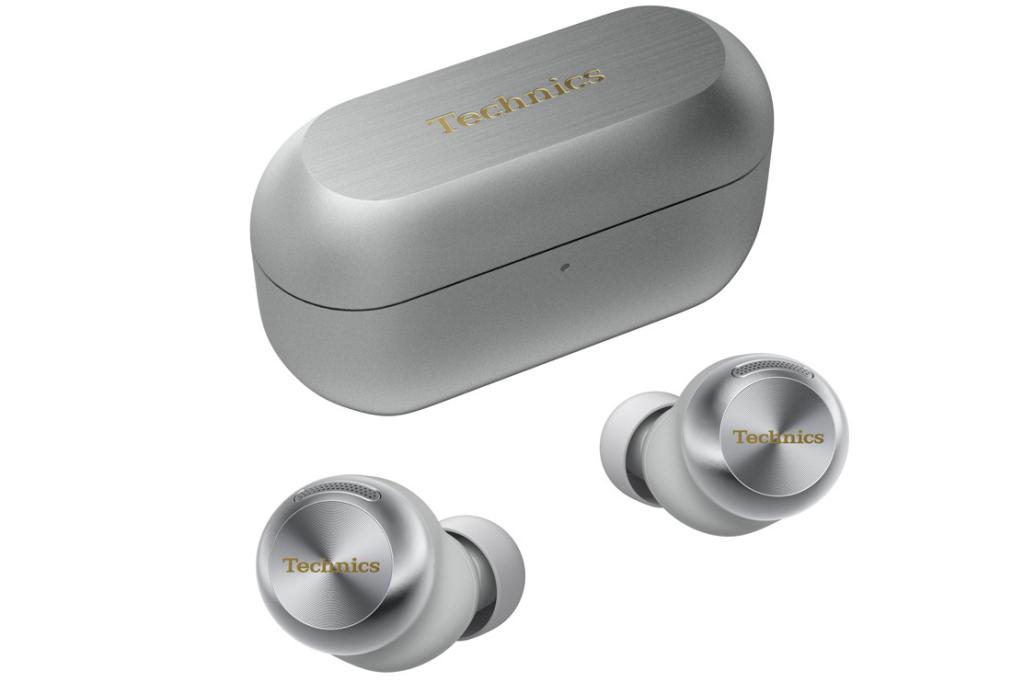
If Technics set out to create the ultimate all-rounder with the AZ80, the EAH-AZ100 finally delivers on that ambition. The secret weapon is the magnetic fluid driver technology borrowed from the brand’s expensive wired earphones, filling the space between magnet and voice coil with oil-like liquid to dramatically diminish distortion. The result is impressively nuanced sound with crisp treble that never turns harsh and bass that punches without overpowering.
Adaptive noise cancellation has caught up with class leaders, effortlessly muting trains and traffic while producing barely detectable hiss. Battery life jumps to seven hours with hi-res LDAC enabled, or 10 with standard codecs. The redesigned shape sits more flush and comfortably than before, secure enough for running yet gentle enough for sleeping.
An eight-band equaliser with three saveable custom modes adds welcome flexibility, while Bluetooth LE and Auracast support future-proofs connectivity. It’s a rare wireless earbud that genuinely shines at everything.
Also shortlisted
Bose Quietcomfort Ultra Earbuds Gen 2, JBL Tour Pro 3
Affordable headphones of the year: Cambridge Audio Melomania A100
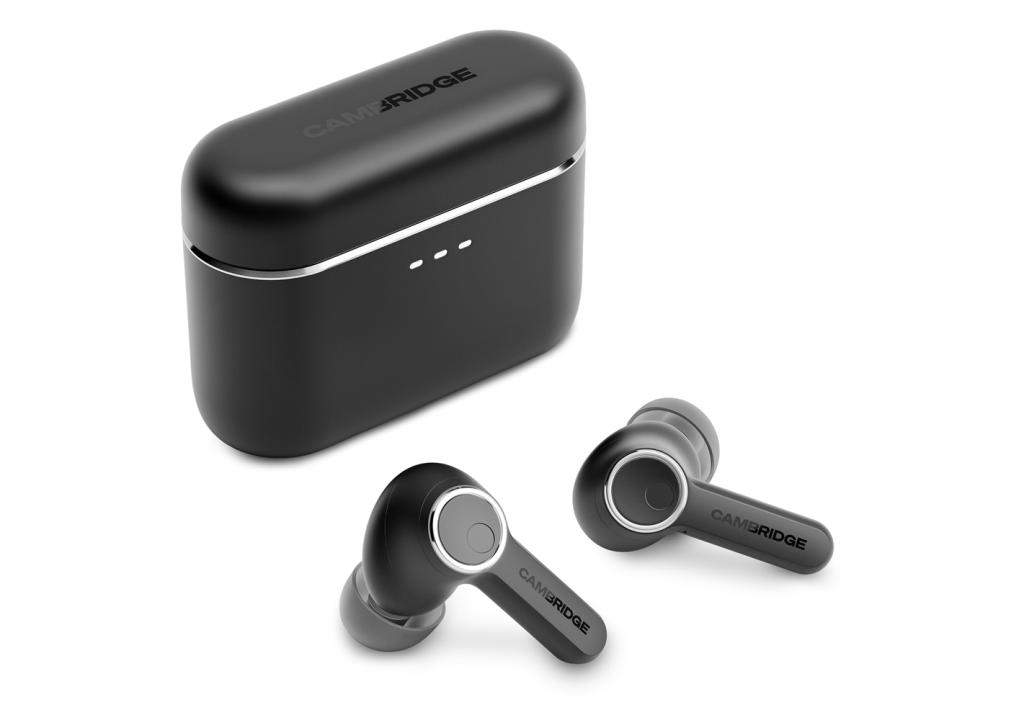
Cambridge Audio’s Melomania series has long been a refreshing alternative to generic mainstream true wireless earphones; the superb A100s continue that tradition impressively. Building on the previous M100s but in a more compact design, these buds sound far more expensive than their price suggests. The listening quality proves engaging across music and podcasts alike, whilst noise cancelling performs admirably for the money – in our tests, nearby conversations remained mercifully inaudible even at moderate volumes.
The default controls work brilliantly, with the single taps that between noise cancellation modes accompanied by clear voice confirmations rather than cryptic beeps. The companion app has improved significantly too, offering extensive customisation including equaliser adjustments, wear detection and dedicated sleep and gaming modes.
Battery life represents the main compromise compared to pricier competitors, but at this low of a price point that’s entirely forgivable. It’s not short of serious rivals, but the A100 holds its ground through sheer sonic capability.
Highly commended
Nothing Ear 3
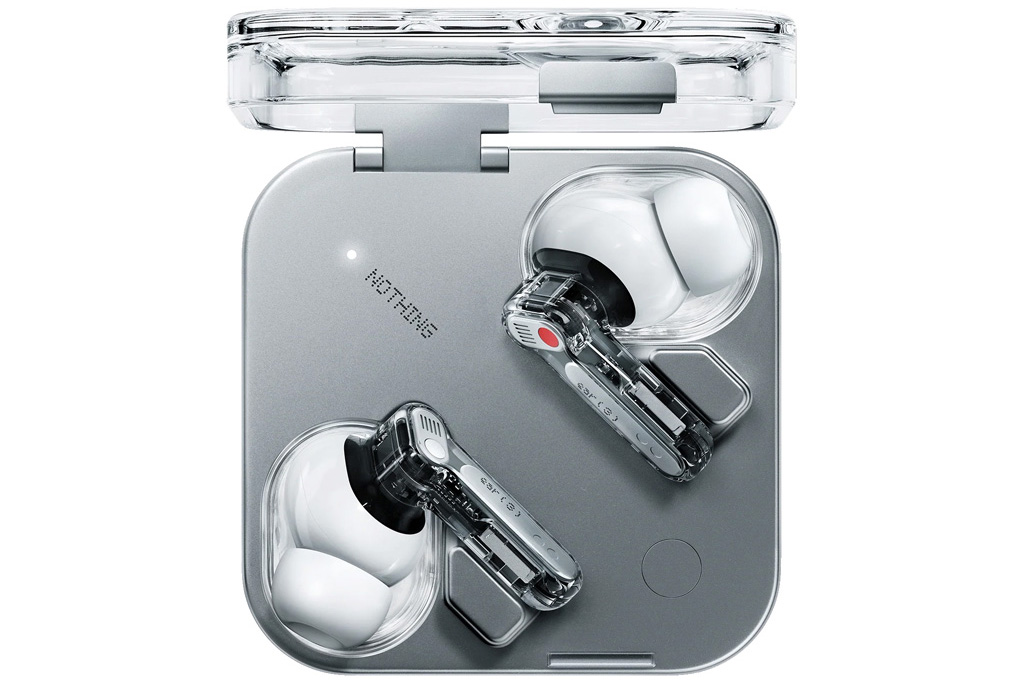
Nothing brings maturity to its transparent earbud range, alongside genuinely useful innovations. The metal-trimmed design represents Nothing’s most grown-up effort yet, whilst larger dynamic drivers and refined build quality justify the slight price increase over the Ear 2.
Spatial sound joins improved antenna design, reducing Bluetooth dropouts in crowded locations even when streaming hi-res LDAC codec. Pinch controls remain wonderfully intuitive, preventing accidental triggers that plague touch-sensitive alternatives, while the fit stays secure during exercise thanks to clever angle adjustments.
The standout addition, though, is the Super Mic built into the charging case, featuring microphones substantially larger than anything found inside earbuds themselves. Hold the Talk button during calls and clarity improves noticeably – in tests, we found pronunciation sounded sharper with more natural sibilance. Compatibility represents the main limitation currently – only certain apps recognise the Super Mic properly and traditional phone calls get no benefit, though the feature works brilliantly over Wi-Fi calling services.
Apple AirPods 4
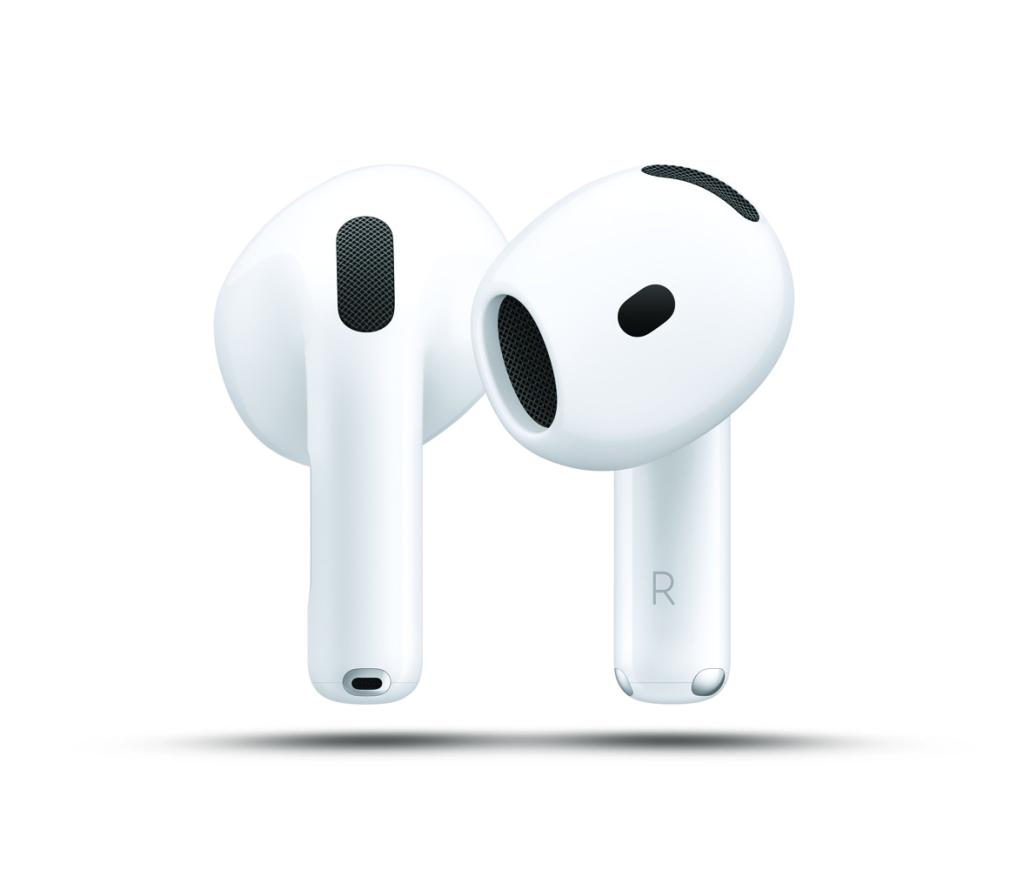
Apple at last brings Pro-level features to its base AirPods 4, transforming them from merely acceptable cost-savers to something much more compelling. The redesigned shape boosts comfort by providing a snugger fit, though the most significant upgrade for us is the introduction of active noise cancellation. Previously exclusive to premium models, blocking out background blabber now costs considerably less – though sadly transparency mode and automatic switching remain Pro territory for now.
The case gains wireless charging alongside Find My compatibility, as well as integrated speakers for playing location chimes when misplaced. Across buds and case combined, a respectable 30 hours total battery life seems achievable.
At $129/£119 without ANC or $179/£169 with it, these buds represent excellent value within Apple’s ecosystem. The stems shrink closer to Pro proportions whilst maintaining that instantly recognisable silhouette and the 4th-gen refinements prove meaningful rather than superficial, finally delivering proper competition against premium alternatives whilst undercutting them significantly.
Also shortlisted
OnePlus Buds 4
c
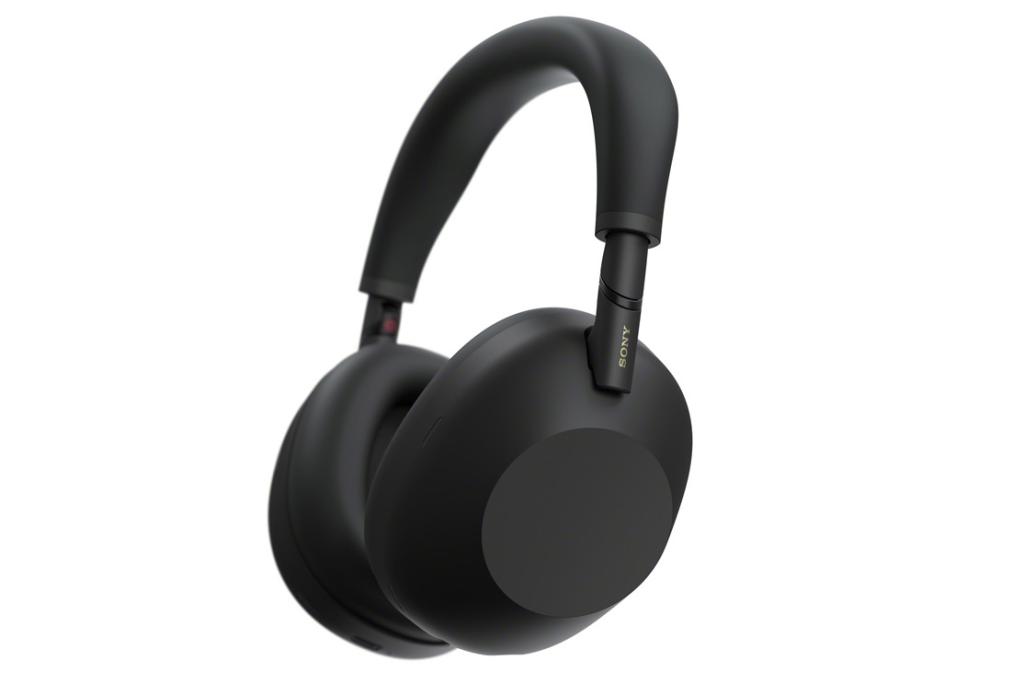
When you’re already king of the noise-cancelling headphone hierarchy, pushing things further seems impossible. Yet Sony has managed exactly that with the WH-1000XM6, delivering refinements to address every complaint about the XM5 while raising the bar for audio performance.
The headline change is the return of travel-friendly foldability, disappointingly abandoned in the XM5. The new twisting hinge mechanism feels reassuringly solid. Elsewhere, subtle design tweaks improve wearability: an asymmetrical headband helps you identify which way round they go, reduced side gaps eliminate the ‘Mickey Mouse ears’ effect, and a magnetic case flap replaces the fiddly zip.
Sound quality is exceptional, shaped through collaboration between Sony’s engineers and mastering professionals from Battery Studios. The upgraded 30mm carbon fibre driver delivers precise clarity across every genre. But the real magic happens with noise cancellation: 12 microphones and a new processor create jaw-dropping ANC performance that eradicates plane engines and office chatter without that disorientating vacuum feeling.
Highly commended
Bowers & Wilkins PX7 S3
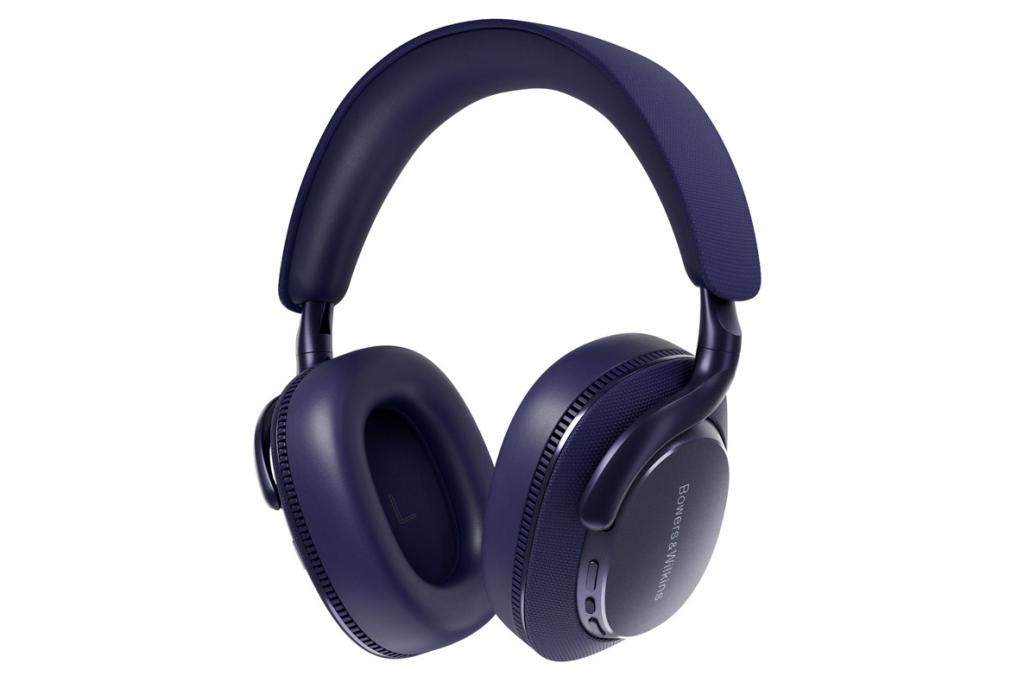
The PX7 S3 delivers audio performance fit to rival headphones costing significantly more. The redesigned 40mm drive units, now powered by dedicated amplifiers, produce stunningly rich sound with remarkable clarity. Even at high volumes, distortion remains essentially non-existent.
The noise cancellation gets a major glow-up too. An eight-microphone array blocks out external sound so effectively that you’ll want transparency mode enabled when navigating busy streets. On flights, conversations and drinks trolley noise fades to nothing.
Bowers & Wilkins’ subtle design tweaks improve usability. The smaller earcups reduce bulk, while revised physical controls make the crucial play/pause button easier to identify by touch.
Battery life sits at 30 hours with noise cancellation active, which feels adequate rather than exceptional given what some rivals now offer. Spatial audio support will arrive via a future updates rather than at launch, but these brilliant headphones remain among our 2025 favourites regardless.
Bose QuietComfort Ultra Headphones Gen 2
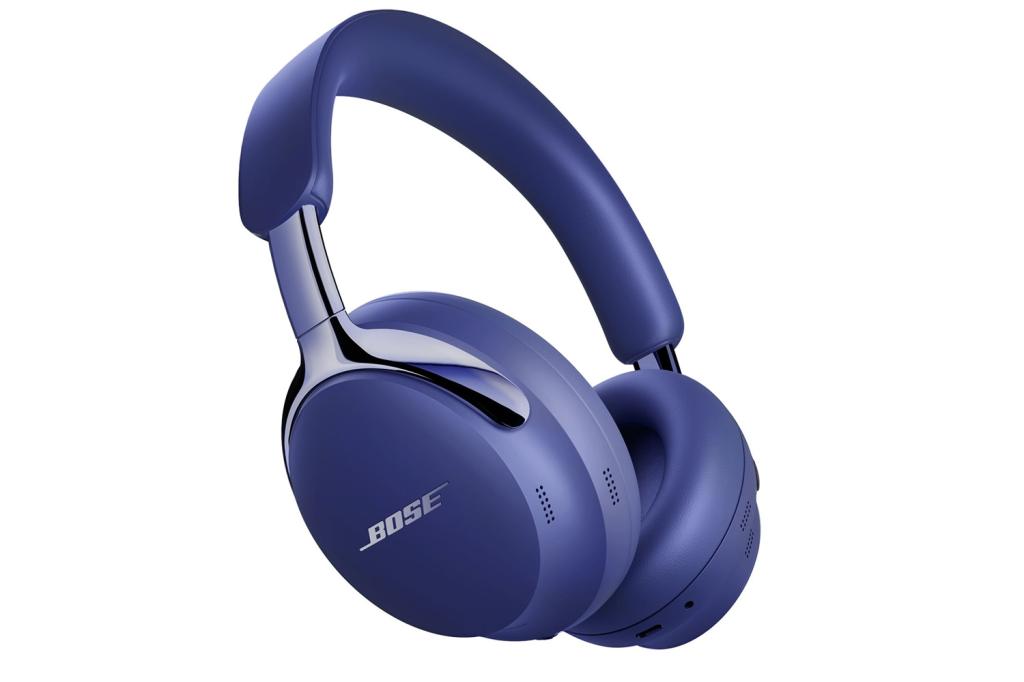
Bose has lavished its flagship headphones with precisely the improvements jet-setting travellers needed most. The headline upgrade to the QuietComfort Ultra 2 is battery life, jumping to 30 hours with noise cancellation active – enough for even the longest of hauls. Automatic start-up eliminates fumbling for power buttons, and wear detection has been given a reliability update. The plush memory foam cushions and lightweight build ensure all-day comfort, even across 24-hour travel marathons.
Noise cancellation remains exceptional, effortlessly shushing plane engines and train rumbles with minimal background hiss. Retuned 40mm drivers deliver deeper bass without sacrificing midrange clarity, while Immersive Audio creates convincing spatial sound. A new Cinema mode proves particularly effective for video content. And lossless USB-C listening finally arrives at 16-bit/48kHz.
While some higher frequencies occasionally slip through the ANC where the original blocked them completely, these are outstanding cans for anyone prioritising comfort and calm on the move.
Also shortlisted
Dali IO-8, B&O Beoplay H100, Austrian Audio The Composer
Fitness headphones of the year: Shokz OpenFit 2
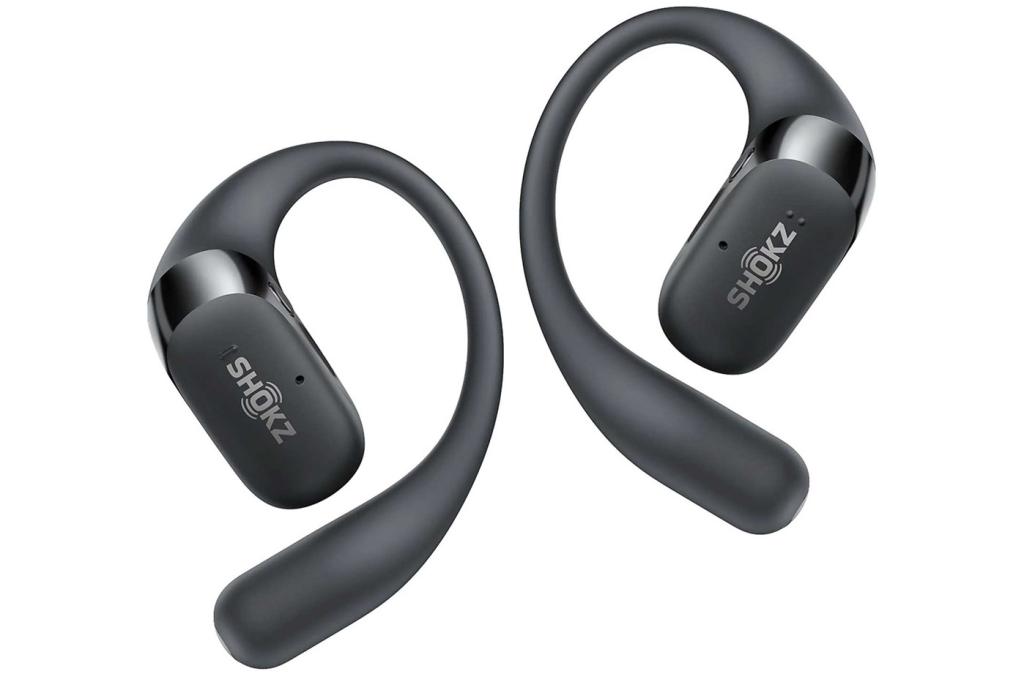
The original OpenFit left plenty of room for improvement, and Shokz has rung the changes for this second-generation model. Its dual drivers deliver substantially stronger sound, plus there’s enhanced battery life and improved comfort.
If you’re caught short, a fleeting 10-minute charge yields two hours of listening time. The companion app remains refreshingly streamlined, prioritising essential features rather than overwhelming users with bells and whistles. IP55 protection handles sweat and rain reliably (though swimming remains off-limits) and while the silicone-and-metal construction picks up dust readily, it’s a cinch to clean.
Fitness fanatics looking to soundtrack their workouts will struggle to find anything that sounds better in this category. Like most open fit buds there’s a lack of low-end heft, but we loved the presence these convey – there’s plenty of oomph and none of the thinness we usually expect. All while giving the wearer more than enough situational awareness to stay safe while exercising.
Highly commended
Beats Powerbeats Pro 2
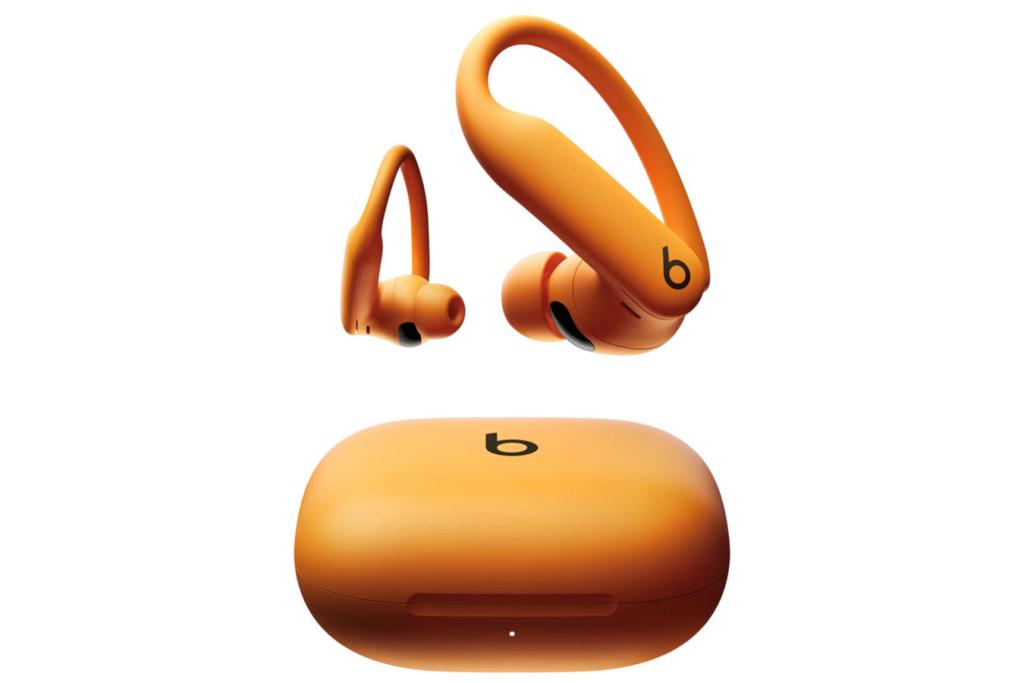
The first new set of Powerbeats in four years get a comprehensive refresh to make the wait worthwhile. Redesigned earhooks, reinforced with nickel-titanium alloy, deliver flexibility and a secure fit during even the wildest workouts, whilst five ear tip sizes ensure proper fitting no matter what kind of lughole you possess.
Apple’s H2 chip brings with it AirPods Pro features like active noise cancellation, transparency mode, adaptive EQ and spatial audio with head tracking. The case now supports Qi wireless charging. The key new addition, perhaps, is built-in heart rate tracking, which uses LED optical sensors to accurately monitor blood flow.
While iOS users face app limitations – heart rate functionality works exclusively with selected fitness applications like Nike Run Club and Peloton – Android users enjoy system-wide access through the Beats application, which seems a little odd given Beats’ parent company. But these are serious fitness headphones for those willing to pay for the best.
Suunto Aqua
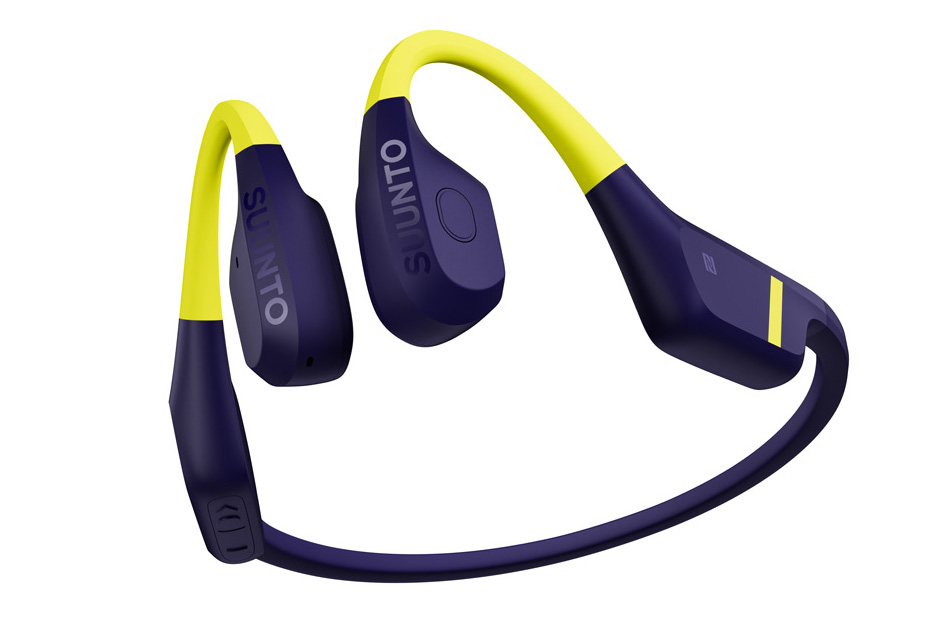
These bone-conductors are perfect for aquatic enthusiasts. Ultra-lightweight and built to withstand serious submersion, they’re waterproof down to 5m and give a comfortable, snug and hair-friendly fit.
Through the Suunto app, you can switch between Normal, Outdoor and Underwater sound modes, with music played via Bluetooth or from the 32GB of built-in storage. We found the audio quality excellent, with potent bass despite the bone-conduction technology.
Charging is rapid: 10 hours of battery life in under an hour, or three hours from a 10-minute top-up. The simple physical buttons work well, but the real magic is in the head controls: a quick nod or shake of your noggin skips songs or answers calls.
Post-swim analysis is also superb, with detailed feedback sent to the app and AI coaching identifying strokes and providing technique efficiency data. While primarily for swimmers, they also feature thoughtful out-of-water functions like a neck fatigue alert for cyclists.
Also shortlisted
Huawei FreeArc, Suunto Sonic




